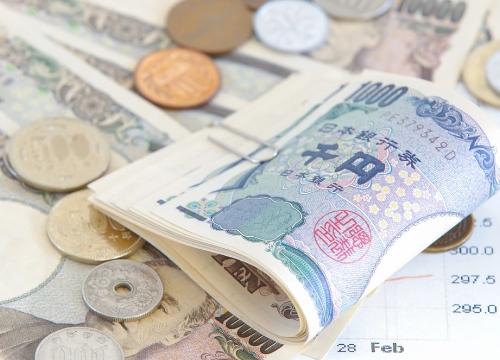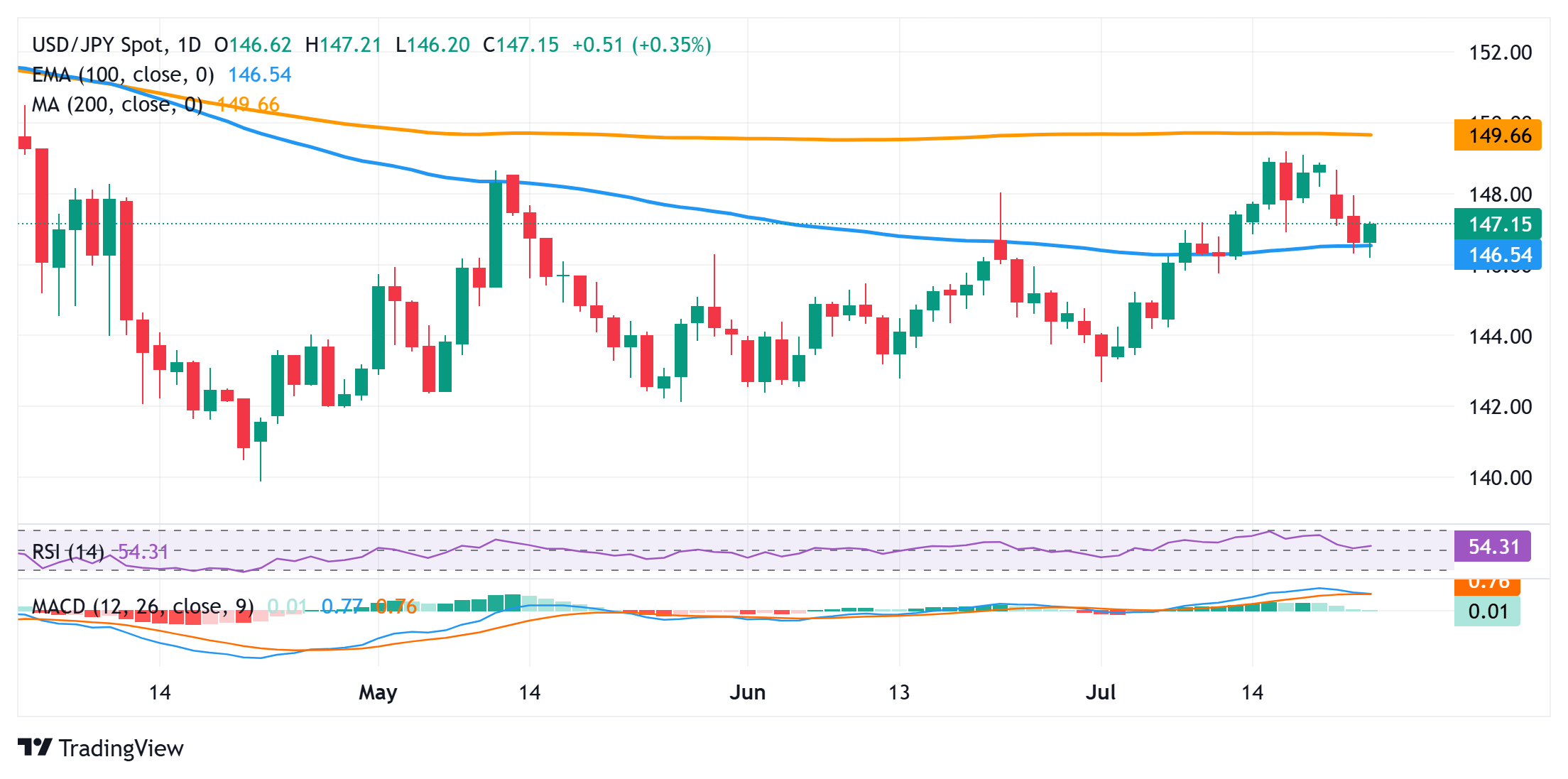Japanese Yen retreats sharply from two-week high against USD amid political uncertainty

The Japanese Yen gets a minor lift after Trump announced US-Japan trade deal.
Domestic political uncertainty prompts heavy intraday selling around the JPY.
A modest USD bounce from a two-week low further supports the USD/JPY pair.
The Japanese Yen (JPY) retreats sharply from a two-week top touched against its American counterpart during the Asian session on Wednesday and lifts the USD/JPY pair above the 147.00 mark in the last hour. Domestic political uncertainty and the upbeat market mood turn out to be key factors undermining the JPY. In fact, a Japanese media outlet reports that Prime Minister Shigeru Ishiba will resign by the end of August
This, along with a modest US Dollar (USD) recovery, prompts some intraday short-covering move around the USD/JPY pair. Meanwhile, US President Donald Trump announced a massive trade deal with Japan ahead of the impending August 1 tariffs deadline. This might hold back the JPY bears from placing aggressive bets. Furthermore, the uncertainty keeps a lid on any further appreciation for the currency pair.
Japanese Yen bears look to regain control amid domestic political uncertainty
In a social media post, US President Donald Trump announced that his administration had completed a trade deal with Japan. Trump added that Japan will be subject to reciprocal tariffs of 15% and will open their country to trade, including cars and trucks, rice, and certain other agricultural products.
This helps ease market concerns about the potential economic fallout from steep US tariffs and pushes the Japanese Yen higher against the US Dollar for the third straight day, to a nearly two-week top during the Asian session on Wednesday. However, domestic political uncertainty caps the JPY gains.
Japan's ruling coalition – the Liberal Democratic Party (LDP) and its junior partner Komeito – failed to secure a majority in the upper house election on Sunday. Having already lost its majority in Japan's more powerful lower house last year, the outcome is expected to undermine the coalition's influence.
History suggests that domestic political uncertainty tends to keep the Bank of Japan on the sidelines, suggesting that prospects for rate hikes could be delayed for a little bit longer, at least until October. This warrants caution for the JPY bulls and supports the USD/JPY pair amid a modest USD uptick.
BoJ Deputy Governor Shinichi Uchida reiterated that the central bank will continue to raise its policy rate if the economy and prices move in line with its projections. Core consumer inflation may briefly dip below 2% the next fiscal year but is expected to gradually re-accelerate thereafter, Uchida added.
Traders now look forward to the release of the US Existing Home Sales data, due later during the North American session. The focus, however, remains on the flash global PMIs on Thursday, which would provide a fresh insight into the global economic health and influence demand for the safe-haven JPY.
USD/JPY shows some resilience below 100-day SMA and rallies back above 147.00

The USD/JPY pair now seems to have found acceptance below the 38.2% Fibonacci retracement level of the monthly upswing. However, spot prices have been showing some resilience below the 100-day Simple Moving Average (SMA). This, in turn, warrants some caution for bearish traders amid neutral oscillators on the daily chart. Hence, any further slide is more likely to attract some buyers and remain cushioned near the 146.00-145.90 region, or the 50% retracement level. Some follow-through selling, however, should pave the way for deeper losses towards the 145.00 psychological mark.
On the flip side, some follow-through buying could lift the USD/JPY pair further towards the 147.65 hurdle en route to the 148.00 round figure. A sustained strength beyond the latter would negate any near-term negative outlook and lift spot prices to the 149.00 mark with some intermediate hurdle near the 148.65 region, or the weekly high.
* The content presented above, whether from a third party or not, is considered as general advice only. This article should not be construed as containing investment advice, investment recommendations, an offer of or solicitation for any transactions in financial instruments.


